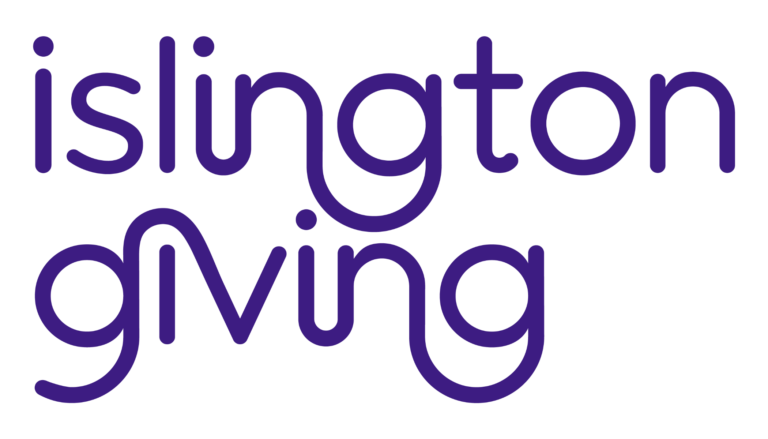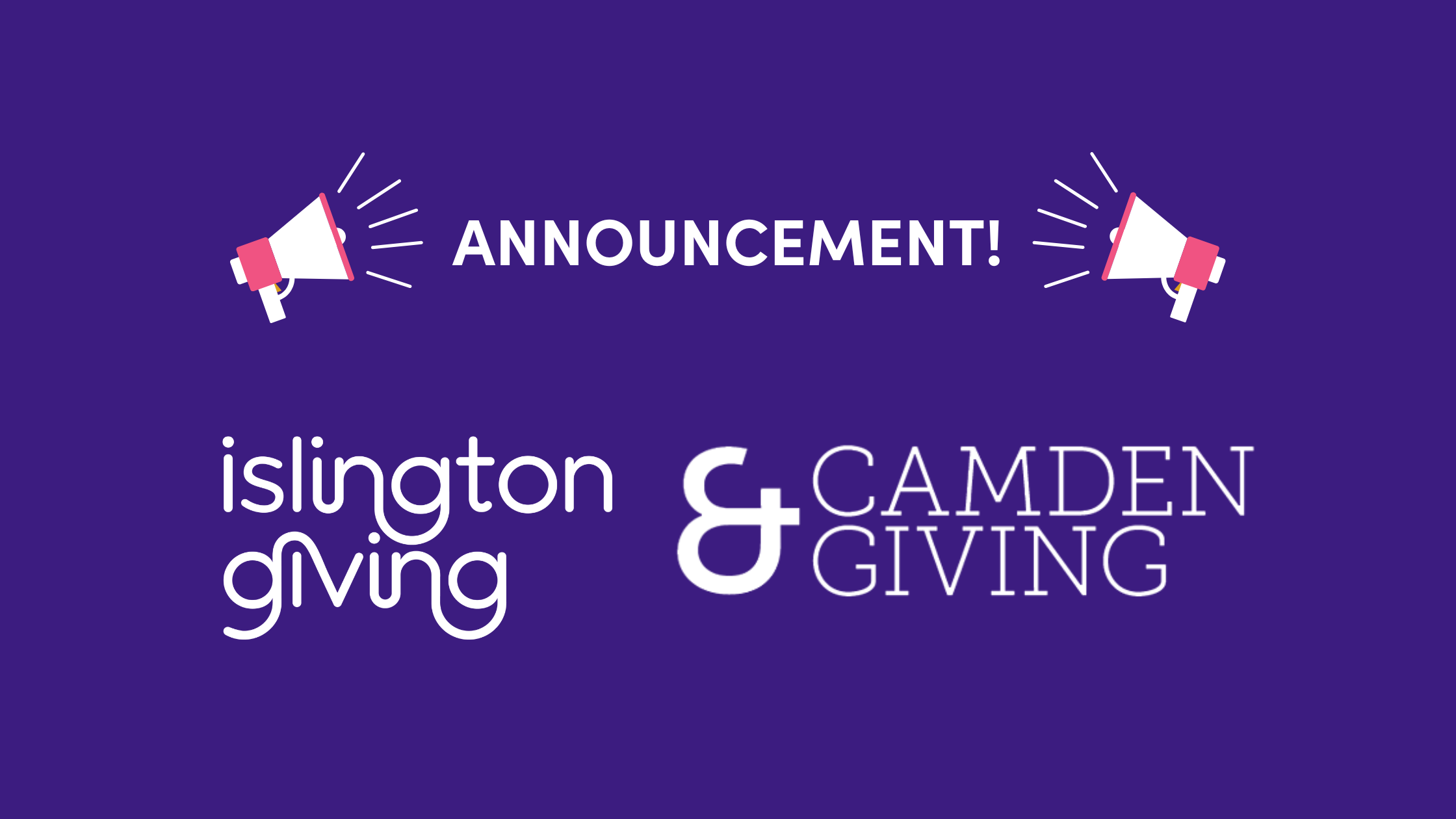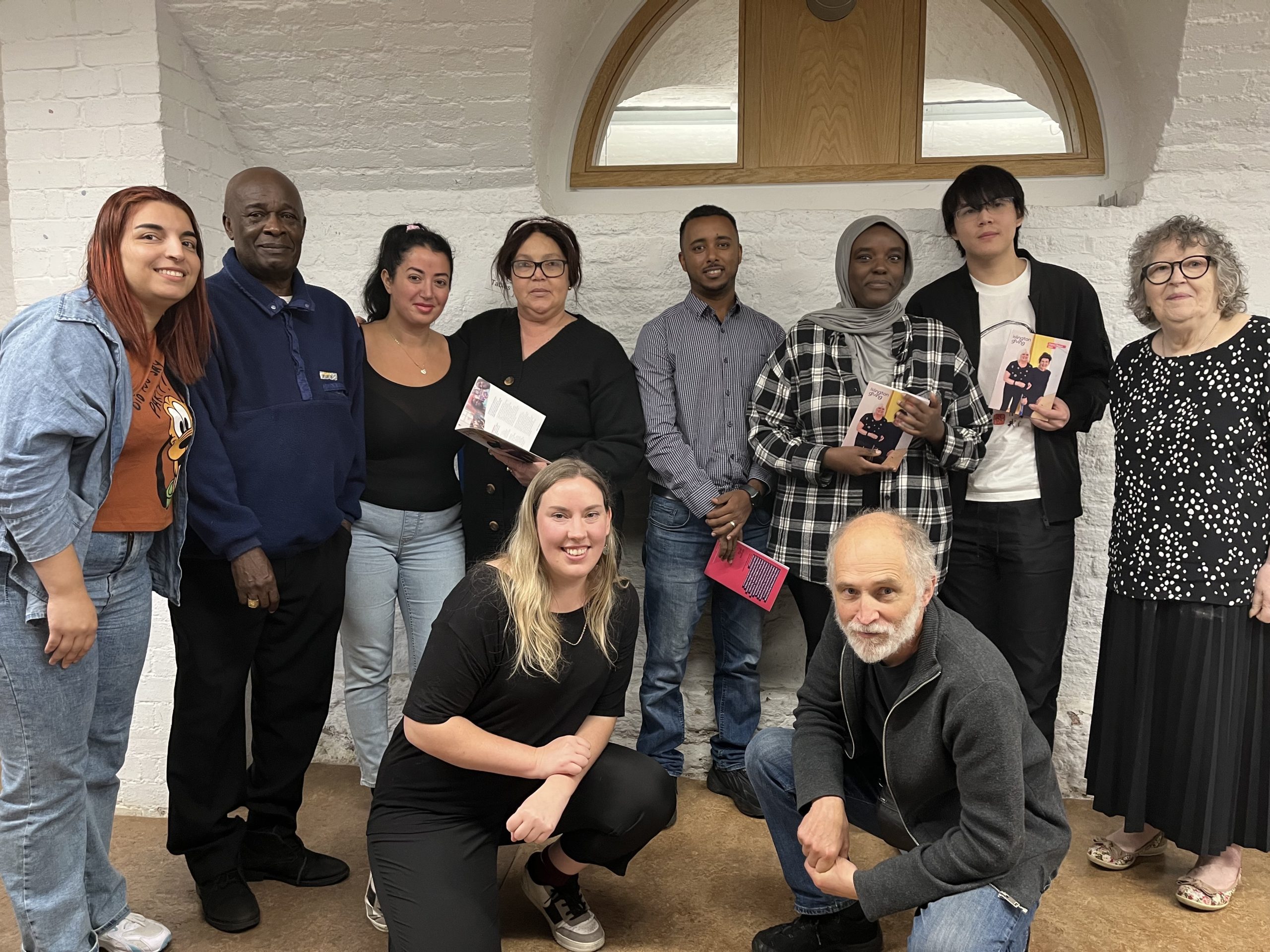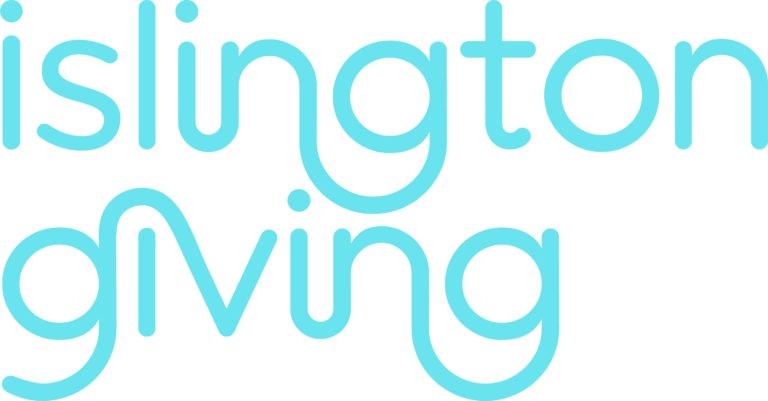Islington Giving is a place-based giving organisation. As a coalition of local people, funders, and businesses, we are rooted in Islington and support local projects.
Despite the many amazing opportunities on our doorstep, Islington remains one of the most unequal boroughs in the UK. At Islington Giving we’re committed to making Islington a more equal place where everyone can live a good life. To get there, we believe that residents who take part in, and benefit from, the groups and projects we fund should also participate in the decision-making about how our grants are awarded. This is where residents’ panels can help.
Since our first Young Grant Makers’ (YGM) panel in 2018, 81 residents (across a spectrum of ages, backgrounds, and experiences) have taken part in grant making via one of our resident-led panels. They have awarded £870,000 in total so far.
“I’m Mariama, I’m 17 and am from Holloway. I’m interested in social media. I joined YGMs because I wanted to do something new and make a change in my local area. I hope this funding helps create a visible change in Islington as the projects we are asking for tackle problems I care about.”
Mariama, Young Grant Maker 2022/23
What is a resident-led panel?
Residents’ panels are at the heart of a process often referred to as participatory grant-making (PGM). The main aim of residents’ panels is to share power with local people most affected by the issues we’re trying to address, by engaging them in the decision-making.
As part of the process, a group of residents are supported by Islington Giving’s experienced staff team. Using their own experiences and through discussion, challenge and learning, the panel will draft a funding call to tell local groups the kind of work they are interested in supporting. Groups can then apply for funding, if they think their work matches the priorities of the panel. Panel members will receive and discuss applications, and meet people from the shortlisted projects, before making final decisions about which projects to support. With residents’ panels Islington Giving is contributing to vision of a more inclusive and fairer borough.
Why bother?
Through Islington residents’ panels Islington Giving aims to:
- Diversify decision-making by learning from, and listening to, people who live in the borough
- Challenge our own perceptions and ways of doing things
- Share power and be more accountable and transparent to the local communities in which we work
- Open a platform for local residents to create opportunities for their borough
- Provide opportunities for people living locally to meet new people in the borough, gain confidence and experience in the grant-making sector and develop local knowledge and agency.
“This programme gives us a form of responsibility that shows society why young people should have some impact in decision making, as sooner or later, this will be our world for us to run.”
Young Grant Maker, 2022/23
What have we learnt this year?
With a brand new resident panel created for older residents (our Golden Grant Makers programme) this year, we have expanded the ways people can get involved with our work, as well as learnt some valuable lessons in how to better engage older people in our borough. We also ran our fifth Young Grant Makers’ panel and residents helped us make decisions about our micro-grants programme, Make It Happen, which gives residents up to £500 to do something fun and interesting in their community.
Below are our top insights from this year’s programmes. You can read the full reports at the bottom of this article for in-depth analysis and lessons we are taking into the next resident-led programmes from September.
Young Grant Makers
- Continuity of funding – there is an ongoing challenge between long-term core funding and shorter-term project funding and whilst we held general conversations about the pros and cons, the decision-making was left entirely to Young Grant Makers.
- Outreach to new services – we learnt that around the festive period, organisations need more time to apply for funding due to holidays and time off. In addition, spending more time to reach out to organisations individually is also beneficial.
- Age range – working to include the views and experiences of young people from across the age range 16 to 24 can be a challenge, but also rewarding.
- Offering anonymous feedback and regular questionnaires throughout the programme – our Young Grant Makers told us that the chance to offer anonymous feedback would have been beneficial, which we will take on board for future iterations of the programme.
- Managing expectations or limiting administrative burden on applications – local VCS (Voluntary & Community Sector) groups have limited capacity and are under huge pressure. We are keen to not add to that burden. In future rounds, a more specific funding call would help limit the number of groups who apply and do not get funding.
Golden Grant Makers
- Panel recruitment – more thought is needed to cast the net wide to attract panel members and ensure diversity in the panel. In the future we will go out to where older people are and build in enough time to go out again if necessary.
- Think about how the process is promoted in relation to payment – we always offer to pay our resident grant makers but some older people told us this put them off applying at first because they thought it meant they needed experience to do the job.
- Be flexible on timing so that it works for everyone – probably more frequent but shorter meetings would be better for older people.
- Continue to prioritise a safe and respectful environment – whatever the process, whoever is involved, we need to create safe spaces to ensure free debate as well as to challenge conscious and unconscious bias.
- Application processes and considering alternative application methods (for panel members and applicants) – we need to keep the application processes as simple as possible and ensure a tight focus on the funding criteria to keep application numbers manageable (for applicant groups, as well as the panel).
“After taking part in the Golden Grant Makers, I am going to get back into work. It’s given me more confidence to talk to people – and something else to add to my CV!”
Golden Grant Maker 2022/23
What changes are we making for the 2023 cohorts?
Young Grant Makers
At the end of this year’s Young Grant Makers programme in May 2023, we brought together some former Young Grant Makers (3 from 2022 and 1 from 2021) to discuss the possibility of creating further work experience opportunities. As a result, the Programme Leader roles for the next YGM programme, starting in September 2023, will be offered to all former YGMs.
These roles will be advertised in June 2023, with a start date for initial training in August 2023.
The plan will be to recruit new YGMs in September 2023 for the new programme to run from October 2023 – March 2024.
Golden Grant Makers
Longer recruitment period, taking more time to engage with a range of older people. This may be achieved by going out to meet with and talk to older residents in places they are already attending, such as local Good Neighbours Schemes, wellbeing networks and other sessions.
On key learning from the last programme is that we need to host more regular, but shorter meetings to make the best use of time.
As part of the application process, we plan to use an expression of interest form for initial applications, rather than asking groups to compete a whole form. This should help manage the time, energy and expectations of the panellists and applicant groups.
Next steps
We very much look forward to taking the lessons from the review of both programmes into the next phases of Young Grant Makers and Golden Grant Makers, which will start in September 2023. You can find the full reports on both programmes from this year in the links below. Both reports contain in-depth and practical tips on how to run a resident-led / participatory grant-making programme.
Thank you!
Our resident-led panels would not be possible without the support of some of our key funding partners. This year’s funding for Young Grant Makers and Golden Grant Makers includes BBC Children in Need, The Mercers’ Company, City Bridge Trust, National Lottery Community Fund, and local residents’ donations.
You can download and read both reports by clicking the buttons below.






